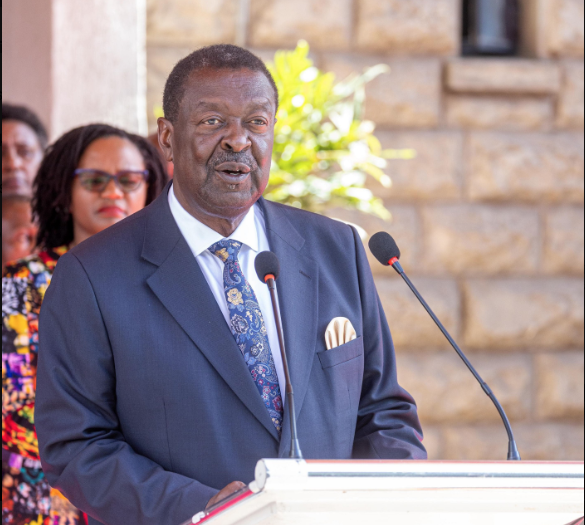The government is taking action on the Chinese national captured in a video assaulting a Kenyan at a private company, Prime Cabinet Secretary Musalia Mudavadi has revealed.
In a statement, Mudavadi termed the incidence as unfortunate and distressing even as the Chinese Embassy in Nairobi condemned it as unacceptable and contrary to the conduct expected of its citizens abroad.
Mudavadi said Kenya continues to welcome investors, skilled professionals, and development partners from across the world.
However, he said the government remains firm that all foreign nationals must conduct themselves within the framework of Kenyan laws and uphold respect for the country’s culture and citizens.
“The deportation, corporate action, and diplomatic response collectively affirm the
Government’s commitment to protecting Kenyan workers and maintaining a safe and respectful working environment for all,” he said.
Mudavadi has in numerous public forums, emphasised that adherence to local laws is a universal expectation.
“When in another country, abide by their laws, respect their people, and understand their culture,” he stated.
“Kenya expects the same courtesy from all foreign nationals living and working within our borders.”
The Chinese Embassy in Nairobi said it was extremely disappointed by the confrontation, which has sparked public outrage online.
According to the mission, the management of the company involved has since terminated the contract of the Chinese worker seen in the recording and is considering additional disciplinary measures.
“We have noticed a video circulating online showing a Chinese worker at a private company assaulting his Kenyan colleague. We are extremely disappointed to see such an incident occur,” the statement read.
The Embassy emphasised that it consistently reminds Chinese citizens living and working in Kenya to respect the country’s laws, regulations, and cultural norms.
“The Embassy consistently requires Chinese citizens in Kenya to strictly abide by local laws, regulations, and cultural customs, and the vast majority of them do so,” it added.
While terming the altercation an isolated case, the mission urged that it should not be used to undermine the broader investment relationship between Kenya and China.
However, it stressed that the episode serves as a reminder to all Chinese nationals in the country to uphold mutual respect and lawful conduct.
“We believe this isolated incident should not affect investment cooperation between Chinese and Kenyan companies, but it is a reminder to all Chinese citizens in Kenya to uphold the principle of mutual respect with Kenyan friends and behave in accordance to the laws, regulations, and cultural customs of Kenya,” the Embassy said.
The Embassy said it will continue engaging relevant authorities as the company handles the matter internally. By Allan Kisia, The Star






